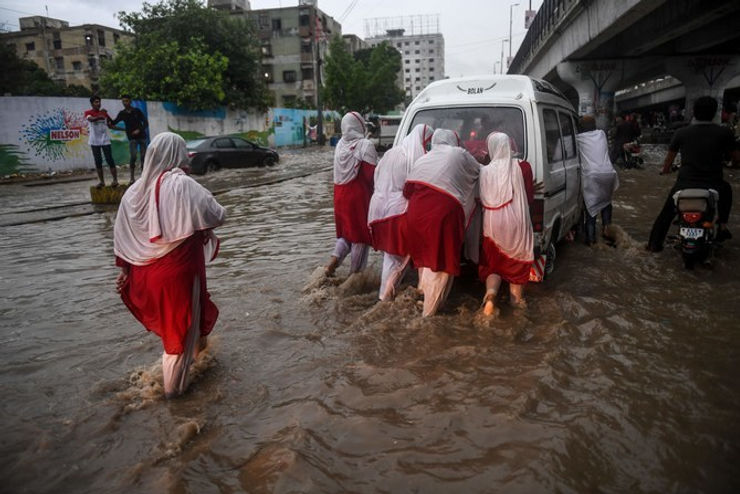By: Grace Zhang
Pakistan’s monsoon season, which occurs from June through August, sparks significant criticism over bad government preparation and is an annual problem.
The National Disaster Management Authority reported on Thursday that at least 282 people had died as a result of the monsoon rains in the past five weeks, many of them women and children. According to the administration, the downpour also caused damage to important infrastructure like highways and bridges as well as about 5,600 residences.
Murtaza Hussain, a Pakistani first-class cricketer and his neighbors in Kausar Niazi Colony, Karachi, Pakistan, a favela in the city of Karachi, observed year after year as monsoon rains poured into homes and ruined priceless possessions.
According to scientists, there are indications that the monsoons will be exacerbated by climate change. Sherry Rehman, the nation’s minister for climate change, claimed that this year’s rains have been 87 percent heavier than the typical rainfall. She also associated the new weather pattern with climate change. “This is a national disaster,” she said.
Major thoroughfares have become streams as a result of the flooding. Sewage leaks from manholes have caused homes to flood. To prevent exposed wires from coming into contact with water on the streets and electrocuting people, electricity has been turned off for hours or days. At least 31 people died as a consequence of the destruction, many of whom died after being electrocuted or drowned when walls and roofs collapsed on them. The port city has been in ruins for days as a result of the catastrophe.
Murtaza Wahab, the city’s administrator, claimed that urgent changes were required because Karachi’s old drainage and sewage system was unable to handle the heavy downpours.
However, he asserted that the city did better this year than it did in 2020 since the administration began clearing backed-up drains and building some new ones.
Fazal Ali, an accountant who lives in the Defense Housing Authority said, “The water waves gushed into the home whenever a vehicle passed by our house through the street, the iron gate was broken in a flash flood two years earlier as well. The government has learned no lessons from past disasters.”
Government officials were forced to act to protect Karachi from the annual monsoons as a result of the tremendous damage caused by those floods and the following protest there.











